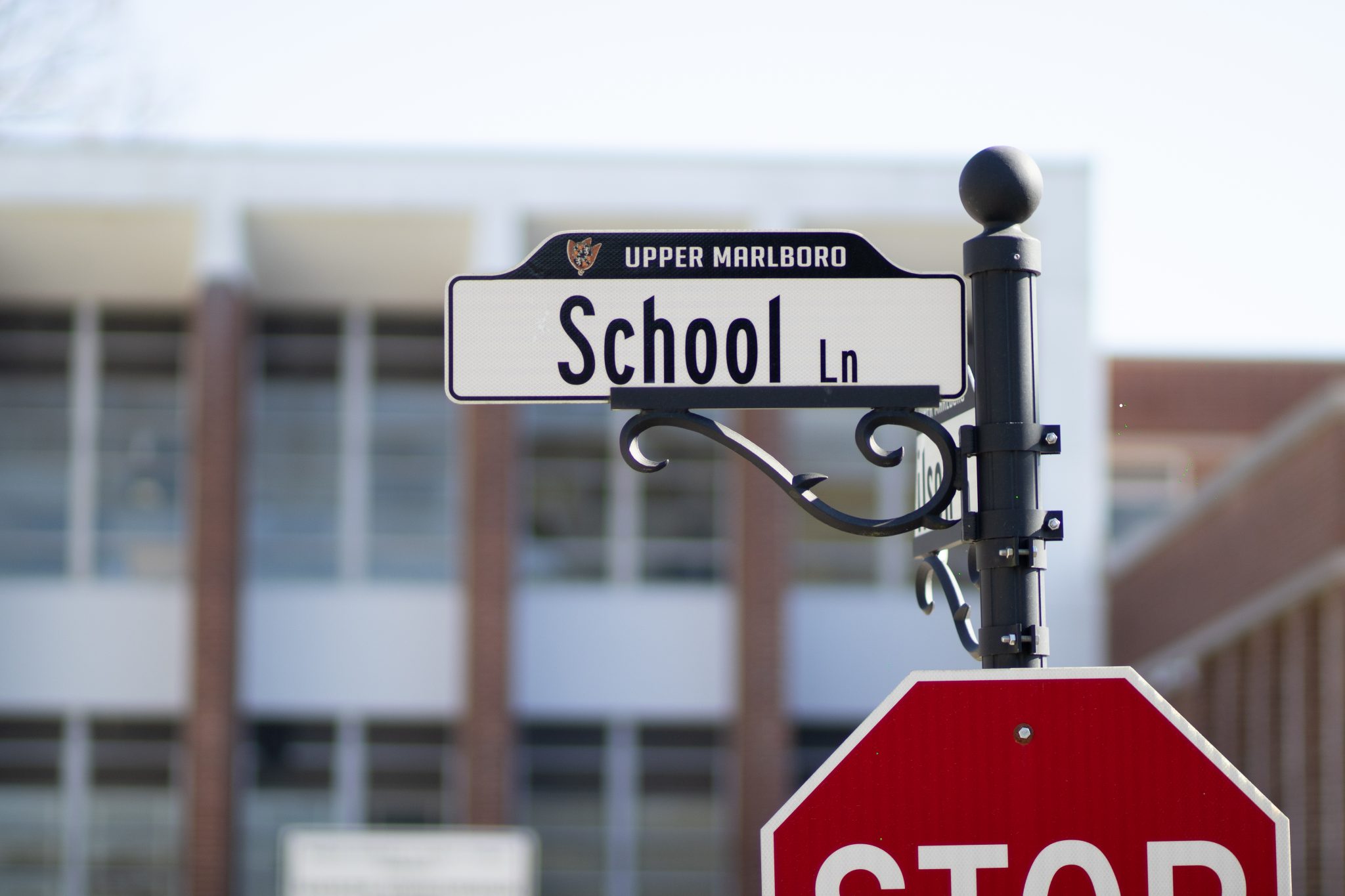Views expressed in opinion columns are the author’s own.
The kids are not okay. Preparing for what you would do, as a six-year-old, to stop a mass shooter should not be a normal part of a child’s life. For those of us who have gone through lockdown drills, scanning a room to find the nearest chair, pair of scissors, or any other makeshift weaponry in the event of a shooting is a stupidly normalized thought process.
Hopelessness and sadness are staples of the public school experience, with more than one in six Prince George’s County Public Schools high school students experiencing suicidal ideation, according to a 2016 survey. With gun violence consistently at the forefront of the public consciousness, it’s no surprise that the already-high stress of school is further compounded by the peripheral stress of violence.
In an attempt to make our schools safer and reduce fears of such violence, PGCPS is installing metal detectors in schools and requiring students to use transparent backpacks for the upcoming school year.
Although this requirement may make parents or administrators feel like something is being done, the truth is that such measures have not proven to be effective for school safety. Furthermore, this initiative signals a profound distrust toward kids yearning for some semblance of hope, safety and community for the sake of pretending to address a problem.
One barely needs to squint to see the parallels between this wave of see-through backpacks and the performative and reactionary solutions of the past like the banning of trench coats or the change in dress codes to exclude black clothing from schools after the Columbine High School massacre.
Instead of constantly looking for solutions that feel affirmative, we should actually push for solutions that protect students like expanding mental health resources and passing more extensive gun safety laws.
The uniquely American problem of school shootings can be attributed to two main things: extremely poor mental health states and remarkably unrestricted access to firearms. It would follow that addressing these two issues makes schools safer in regards to both the literal violence as well as the emotional toll that this anxiety takes on each kid that steps onto the bus. Clear backpacks and metal detectors only unnecessarily heighten students’ anxiety.
Instead, lawmakers can take a crucial step towards a workable solution by increasing the amount of mental health staff and counselors. PGCPS severely lacks such staff in comparison to the national average and falls well below expert recommendation levels.
If we actually want our students to be taken care of – which we should, regardless of the nebulous threat of a shooting – the state needs to provide more funding for hiring new mental health counselors and higher salaries commensurate with the importance of their jobs. Data demonstrates the positive benefits of accessibility to counselors in academic achievement, social and emotional development and college readiness.
Not every parent is trained to help their kids through the stresses of this era effectively, nor should they have to be. The kids are going through unprecedented times because of social media, COVID-19, gun violence and the student debt crisis. And, they’re pretty much navigating it all alone.
In addition to this painfully obvious measure, data-backed legislative action to promote school safety like Jaelynn’s Law are being passed. Such a complex issue requires a multi-pronged solution beyond the mere scope of guidance counselors.
These child access prevention laws have proven to decrease youth suicide and homicide by making adults liable for negligently storing firearms. A vast majority of the public supports holding people accountable for improper storage of guns. It follows that if those unauthorized to use guns won’t be able to access them, society will be safer. This type of evidence-based legislation in combination with mental health counseling is a well-grounded approach to provide substantive and positive change to our schools and communities.
While solutions like these aren’t as immediately visible and instantly gratifying as transparent backpacks and metal detectors, they do have one thing going for them: they work.
Each day that a society continues to pour resources into performative solutions over real ones, it actively harms people because it deprives them of the resources they need. All of the invasive solutions PGCPS is proposing are all about optics, not safety. We’re a step away from Kevlar-based school uniforms that don’t even help the students wearing them.
Gun violence and the ever-present anxiety it creates in our schools are now a staple of living the “American Dream.” Trying to constantly shift the burden of school safety onto individual students is nothing more than a ploy for people to feel good about trying while avoiding systemic change.
Each day that these kids continue to silently struggle through depression, anxiety and fear on their own is a policy failure and a damning indictment of the solutions that have been put forth. Clear backpacks are dumb, investment in our youth is not.
Rohin Mishra is a sophomore economics and government and politics major. He can be reached at rohinpmishra@gmail.com.



